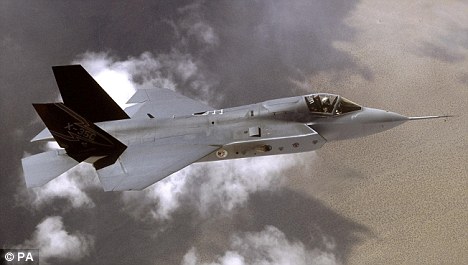Posts Tagged ‘Beijing’
China hacks Gmail accounts of senior U.S. officials one day after Obama’s cyber warning
- Google said U.S. government officials targeted
- Security breach larger than previous Gmail attacks
- Pentagon warn U.S. may retaliate with military force
- Hackers also target military contractor that supplies unmanned aerial vehicles
- Beijing denies being behind attack
Fears China is plotting a devastating ‘cyber war’ against the West were heightened yesterday when it emerged Chinese hackers have stolen hundreds of passwords belonging to senior U.S. government officials.
The security breach was revealed by Google which said victims had been carefully targeted in a scam traced to the city of Jinan in the Communist state’ s Shangdong province.
Experts suspect Chinese hackers are capable of reducing the U.S. or its allies including Britain to stone-age conditions at the press of a button – by crippling the computers running everything from banks and supermarkets to power stations and water plants.

Hacked: Google admitted that hundreds of Gmail accounts had been targeted by hackers in China, including those of senior U.S. officials.
In a chilling echo of the Cold War, a ‘cyber arms race’ is rapidly developing between East and West, with the U.S. even threatening to retaliate with military weapons to any ‘act of war’ attack on its computers from a foreign power.
Earlier this week the US said it would react militarily to future cyber incursions from other countries.
One U.S. military official quoted in the Wall Street Journal as saying: ‘If you shut down our power grid, maybe we will put a missile down one of your smokestacks.’
British defence minister Nick Harvey underlined the growing sense of panic by declaring that ‘action in cyberspace will form part of the future battlefield’.

Row: Google said the phishing scam had originated in China.
Sir Michael Rake, chairman of BT Group and a figurehead for cyber security issues in industry, warned world powers were being drawn into a hi-tech arms race in which countries could wage war without firing a single shot.
Sir Michael said: ‘I don’t think personally it’s an exaggeration to say you can bring a state to its knees without any military action whatsoever.’
Although there is no direct evidence that the Chinese hackers in the latest case are in the pay of the Chinese government, their attacks were so sophisticated and highly-targeted that few experts doubt they were state-sponsored.
Apart from anything else, unlike other internet scams, there was no obvious financial gain behind them, suggesting a sinister rather than a financial motive.
Senior U.S. and South Korean government officials who fell victim to the scam were tricked into giving away their Google and Yahoo email login details.

Threat: The Pentagon said it is ready to retaliate against cyber attacks.

Defence: The Pentagon will reclassify cyber attacks as an aggressive act if it causes the equivalent loss of life or damage to infrastructure as a conventional military attack.
They had received ‘Trojan horse’ emails that purported to be from someone they knew, but were in fact carefully-crafted fakes.
One example email had the title: ‘Fw: Draft US-China Joint Statement’, and contained the text: ‘This is the latest version of State’s joint statement.’
Enticed into opening the email, the unsuspecting user was directed to a convincing but bogus Google or Yahoo email page where they were invited to type in their login and password. When they did so, their supposedly-secret details immediately fell into the hands of the Chinese hackers.
Armed with the passwords, the hackers could access the user’s real email account and spy on genuine emails being sent between government officials.
Although the scam – which went on for months before being uncovered – targeted personal email accounts, rather than government accounts, officials could have forwarded their work emails to their personal Gmail accounts.

Sensitive: The Lockheed Joint Strike Fighter, just one of many weapons manufactured by the company and used by both the U.S. and the UK armed forces.
A Google spokesman said yesterday: ‘Google detected and has disrupted this campaign to take users’ passwords and monitor their emails. We have notified victims and secured their accounts.’
The White House said it was investigating. Secretary of State Hillary Clinton said the allegations were ‘very serious’ and would be investigated by the FBI.
 Beijing has repeatedly denied hacking into foreign countries’ systems.
Beijing has repeatedly denied hacking into foreign countries’ systems.
Britian has found itself under attack also.
Last month, Chancellor George Osborne revealed that foreign intelligence agencies were trying to break into the Treasury computer system to steal information or spread viruses at the rate of more than one attack a day.
MI5 and the FBI have warned British and American companies of the mushrooming threat from Chinese government-backed hackers trying to pilfer commercial secrets.
Whitehall has announced an extra £500million to be spent on bolstering cyber security, amid concerns that Britain’s computer networks linking banking, power and water systems are too vulnerable to digital sabotage.
But America is not always the victim in cyber attacks. The U.S. and Israel were blamed for the development of the Stuxnet virus, a computer worm that targets industrial software and was credited with sabotage attacks on Iran’s nuclear programme.
Delegates at an international cyber security conference held in London this week warned the crisis was so severe that nations should agree an international ‘non-proliferation’ treaty similar to the one drawn up to slow the spread of nuclear weapons.
Via DailyMail
